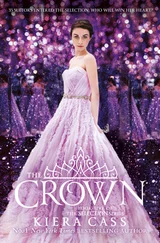Thomas Cook - The Crime of Julian Wells
Здесь есть возможность читать онлайн «Thomas Cook - The Crime of Julian Wells» весь текст электронной книги совершенно бесплатно (целиком полную версию без сокращений). В некоторых случаях можно слушать аудио, скачать через торрент в формате fb2 и присутствует краткое содержание. Год выпуска: 2012, ISBN: 2012, Издательство: Grove Press, Жанр: Криминальный детектив, на английском языке. Описание произведения, (предисловие) а так же отзывы посетителей доступны на портале библиотеки ЛибКат.
- Название:The Crime of Julian Wells
- Автор:
- Издательство:Grove Press
- Жанр:
- Год:2012
- ISBN:9780802194589
- Рейтинг книги:5 / 5. Голосов: 1
-
Избранное:Добавить в избранное
- Отзывы:
-
Ваша оценка:
- 100
- 1
- 2
- 3
- 4
- 5
The Crime of Julian Wells: краткое содержание, описание и аннотация
Предлагаем к чтению аннотацию, описание, краткое содержание или предисловие (зависит от того, что написал сам автор книги «The Crime of Julian Wells»). Если вы не нашли необходимую информацию о книге — напишите в комментариях, мы постараемся отыскать её.
The Crime of Julian Wells — читать онлайн бесплатно полную книгу (весь текст) целиком
Ниже представлен текст книги, разбитый по страницам. Система сохранения места последней прочитанной страницы, позволяет с удобством читать онлайн бесплатно книгу «The Crime of Julian Wells», без необходимости каждый раз заново искать на чём Вы остановились. Поставьте закладку, и сможете в любой момент перейти на страницу, на которой закончили чтение.
Интервал:
Закладка:
Soborov laughed. “Too bad. You might have learned one of our tricks.”
I looked at him quizzically.
“How to make meeting look not planned,” Soborov said. “This how it looks with Julian and me. I am just a man at next table. I rise to leave, but I leave keys on table. Julian picks up keys and gives to me. I take keys and say to him that I am like Borges. Blind, like old poet.” He laughed. “Code is passed, just like in movies.” He looked at me with an almost impish expression. “Too much like in movies, yes?” He waved his hand as if dismissing the subject, and with that gesture, his features became more serious. “This not how I meet Julian, of course.”
“How did you meet him?” I asked.
The old man smiled widely. “You always in big hurry, you Americans, but we have not yet had vodka.”
With that he left the room, then returned to it a few seconds later with the glasses and a bottle encased in a square of ice.
“Do you know what we say in Russia?” he asked.
We shook our heads.
“That drink only second most important thing in life,” Soborov said. “Of first importance is breathe.” He laughed loudly. “You get it, yes?”
We nodded.
He poured each of us a glass, then offered his toast. “To peace.”
We touched our glasses, and with that the old man sat down in a large chair opposite us.
“So, to Julian,” he said. “Because you are Americans, I will tell you quickly. He came to Soviet consulate. He was looking for girl. She had disappeared and he was looking for her. He gets nothing from Casa Rosada, and so he comes to us.” His smile was that of an old man being mischievous. “The Reds.” He shrugged. “We did not know where this woman is, but perhaps we know someone who does.” He appeared briefly reluctant to say more and waved his hand. “Ah, what difference does it make now?”
With this Soborov clapped his hands together.
“All right, then,” he said. “So. Have you ever heard of the Dogo Cordoba?”
I had no idea what this was and said so.
“It is dog,” Soborov told me. “Especially bred in Argentina.” He leaned forward and rubbed his hands together vigorously. “It is fighting dog that is famous for not to back down. The Dogo Cordoba bred to endure great pain. They are champions in the dogfights.”
“What does this have to do with Julian?” Loretta asked.
“Because this is where we send him,” Soborov answered. “To a dogfight.”
I could scarcely imagine Julian at such an event, but by then there were many aspects to Julian’s life that were equally hard to imagine.
“They illegal, these fights,” Soborov continued, “but there are places, hidden places, or maybe not hidden, but protected by police.” His smile was incongruously warm. “And we know what Argentine police doing in other places, no? Things that make dogfights look like country dance.” He drew out a handkerchief and swabbed his neck, as if he had returned to the heat and humidity of an Argentine summer. “It was July,” he said. “Very hot.” Now he turned to Loretta. “They very secretive, of course, the people who go to Dogo Cordoba fights. It is like a secret society. Important people in Argentina come to these special fights. High in government. But also thugs, and of these thugs there is one we keep eye on. He is called El Arabe.”
“The Arab?” I asked.
“That is what he is called, yes,” Soborov said. “Because he is brown, almost like the peasants. He was very low sort of fellow. He had not much intelligence, but low cunning, this he had much. In this way, like Stalin. He had worked himself into a good job running whole network of escuelitas . We knew that some of our people were in his custody, but we did not know where they were. El Arabe was very hard man, maybe impossible to break, we thought, even under stress. But he had weakness.” He laughed at the nature of this weakness, then revealed it. “He was like little child when it comes to Americans. A young man like Julian would attract his attention. This is what we think. A young American. Smart. Good-looking. Maybe with money, maybe from good family. We know that such a one would appeal to El Arabe.”
Loretta looked as if suddenly struck by a cold breeze. “You tried to recruit Julian as a spy?”
“Not at first, because we think maybe he is spy, or maybe he is ‘spy who comes in from cold.’” He laughed. “Either way we wish to keep eye on him.”
Soborov paused to take another sip of vodka.
“There was Dogo Cordoba fight in little town outside Buenos Aires,” Soborov continued. “In pampas, but not far from city. We know El Arabe will be there because he is great lover of these fights. Can you believe this? After day of torture, this is what he does in order to relax, watch dogs tear each other apart.”
He looked at Loretta.
“And so we send your brother there,” he told her. “We give him money and he bet like rich man, and this, too, we know, will catch eye of El Arabe.”
Now his gaze returned to me.
“I was Julian’s ‘handler,’” he said, “and so I go with him there because I want to see if he makes contact and report to my superiors if this American has talent for deception we might later use.” His face soured. “It was dreadful place, where we went that night. Very dreadful place.”
Soborov described the event, how it had been conducted in the sweltering interior of a large shed, the dogs brought in on chains and lashed to the sides of a circular pit whose walls were made of corrugated tin, unpainted and splattered with the blood of previous combats. The crowd was washed with sweat and beer and they screamed to the dogs and across the pit to one another, yelling taunts and bragging about their picks of the night, waving money and sometimes knives.
“It is from hell, this scene,” Soborov said, “and at center of pit, there is El Arabe, with his black hair plastered down, yelling at dogs, laughing, and drinking beer.”
I recalled a scene in The Commissar, a moment when Julian has Chikatilo dream of being a pit master at an orgy of torture, moving about with a riding crop, dressed in a red jacket and high black boots, orchestrating the terrible performance as he strides from ring to ring.
“Julian has been shown photographs of this stupid little bastard,” Soborov went on, “and he make it his business to get near him, waving money like the others, but speaking only good American English, which catches ear of El Arabe.”
In my mind, I saw this “stupid little bastard” turn at the sound of Julian’s voice, his gaze drinking in this young American as if he were a movie star.
“I am across pit, but I see El Arabe speak to Julian, and Julian speak back, then El Arabe turn back to pit and give signal with a big wave of hand for fight to begin.”
What happened after that was a fierce struggle between two Dogo Cordobas, white dogs, Soborov told us, and so the blood that swept over their spinning flanks and dripped from their mouths and coated their teeth and ran down their throats was vivid red.
“The Dogo Cordoba is extinct now,” Soborov said at the end of this description of the fight, “because so many die in the pit and because they become so unstable, cannot be with another dog without killing it. Because of this they disappear.” He offered a rueful smile. “Life cannot be sustained by ferocity alone.” He explained: “I hear this and I like it.”
He was silent for a time, as if his last remark had come to him unexpectedly and was still resonating through his own long memory.
“Anyway, Julian meet El Arabe many times after this,” Soborov said, “in the bars and in dance halls of the tango. He is good at pretending friendship. He can make anyone believe he loves them.” He shrugged. “Once he say to me, ‘All you can offer to those who love you is the pretense that you love them back.’”
Читать дальшеИнтервал:
Закладка:
Похожие книги на «The Crime of Julian Wells»
Представляем Вашему вниманию похожие книги на «The Crime of Julian Wells» списком для выбора. Мы отобрали схожую по названию и смыслу литературу в надежде предоставить читателям больше вариантов отыскать новые, интересные, ещё непрочитанные произведения.
Обсуждение, отзывы о книге «The Crime of Julian Wells» и просто собственные мнения читателей. Оставьте ваши комментарии, напишите, что Вы думаете о произведении, его смысле или главных героях. Укажите что конкретно понравилось, а что нет, и почему Вы так считаете.












